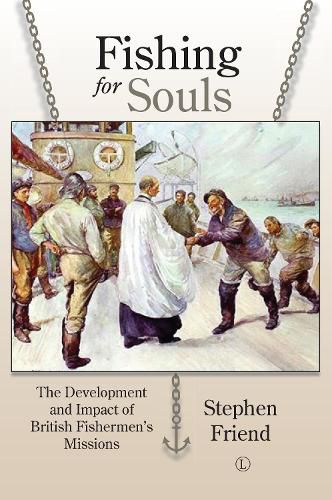Readings Newsletter
Become a Readings Member to make your shopping experience even easier.
Sign in or sign up for free!
You’re not far away from qualifying for FREE standard shipping within Australia
You’ve qualified for FREE standard shipping within Australia
The cart is loading…






Fishing for Souls explores the origins and development of fishermen’s missions in Britain, focussing particularly on the nineteenth and early twentieth centuries. This book is the first to view the entire picture of a significant, although not broadly known, part of British history, and to add new relevant perspectives. Dr Stephen Friend FRSA establishes ‘an historical outline of the development of the churches’ work among British fishing communities and explores why a mission specifically concerned with fishermen was not initiated until the industry entered a period of economic decline during the early 1880s. The factors relating to the development of British fisherman’s missions are complex, involving not only social and technological changes inside and outside the fishing industry, but also changing theological perceptions that had a significant impact on attitudes to social conditions’. With its honesty and objectivity about developments, especially those that were difficult and painful for the fishermen’s mission societies at the time, Fishing for Souls reveals the magnificent work that the various societies did, and in some cases continue to do, making it evident to all the readers.
$9.00 standard shipping within Australia
FREE standard shipping within Australia for orders over $100.00
Express & International shipping calculated at checkout
Fishing for Souls explores the origins and development of fishermen’s missions in Britain, focussing particularly on the nineteenth and early twentieth centuries. This book is the first to view the entire picture of a significant, although not broadly known, part of British history, and to add new relevant perspectives. Dr Stephen Friend FRSA establishes ‘an historical outline of the development of the churches’ work among British fishing communities and explores why a mission specifically concerned with fishermen was not initiated until the industry entered a period of economic decline during the early 1880s. The factors relating to the development of British fisherman’s missions are complex, involving not only social and technological changes inside and outside the fishing industry, but also changing theological perceptions that had a significant impact on attitudes to social conditions’. With its honesty and objectivity about developments, especially those that were difficult and painful for the fishermen’s mission societies at the time, Fishing for Souls reveals the magnificent work that the various societies did, and in some cases continue to do, making it evident to all the readers.